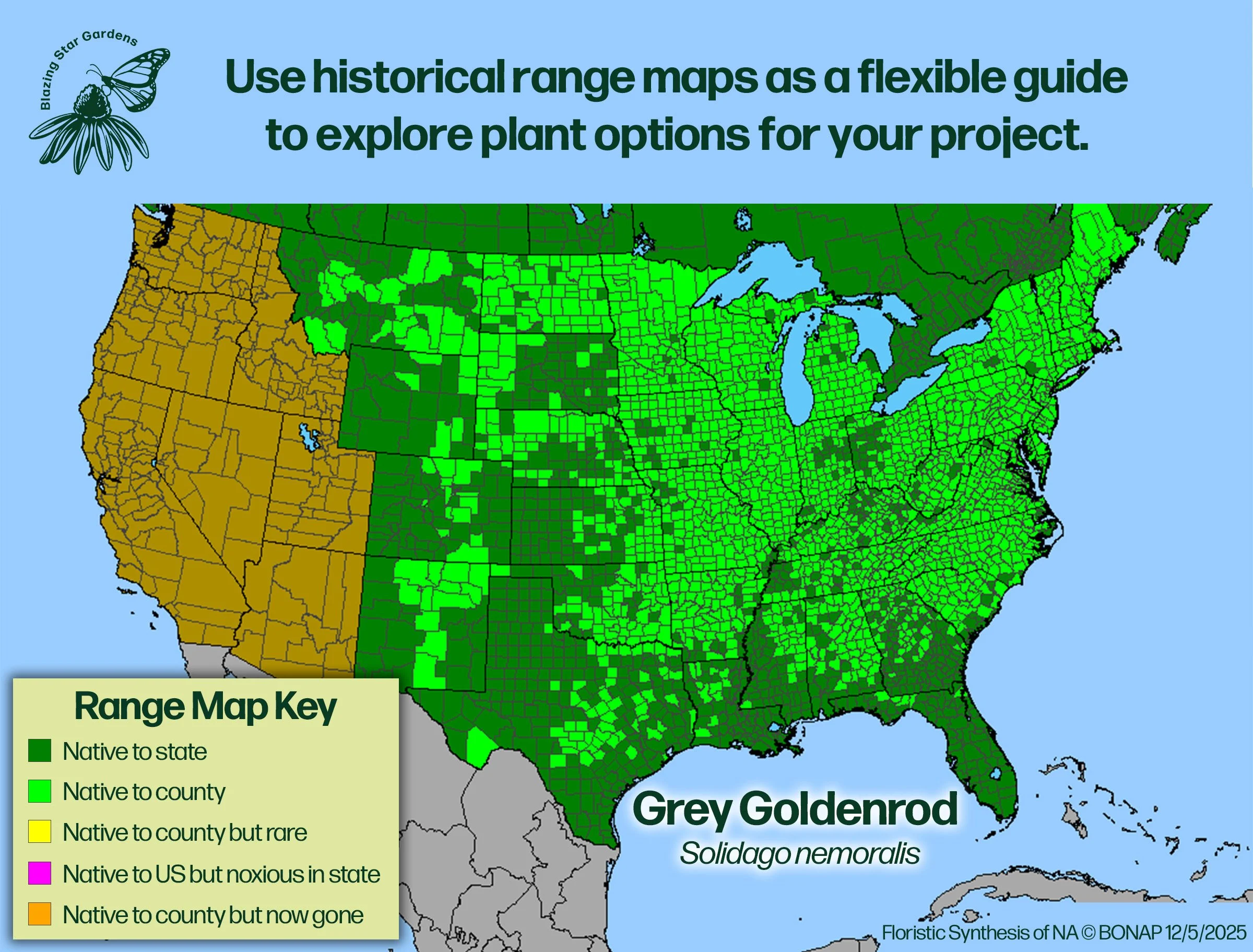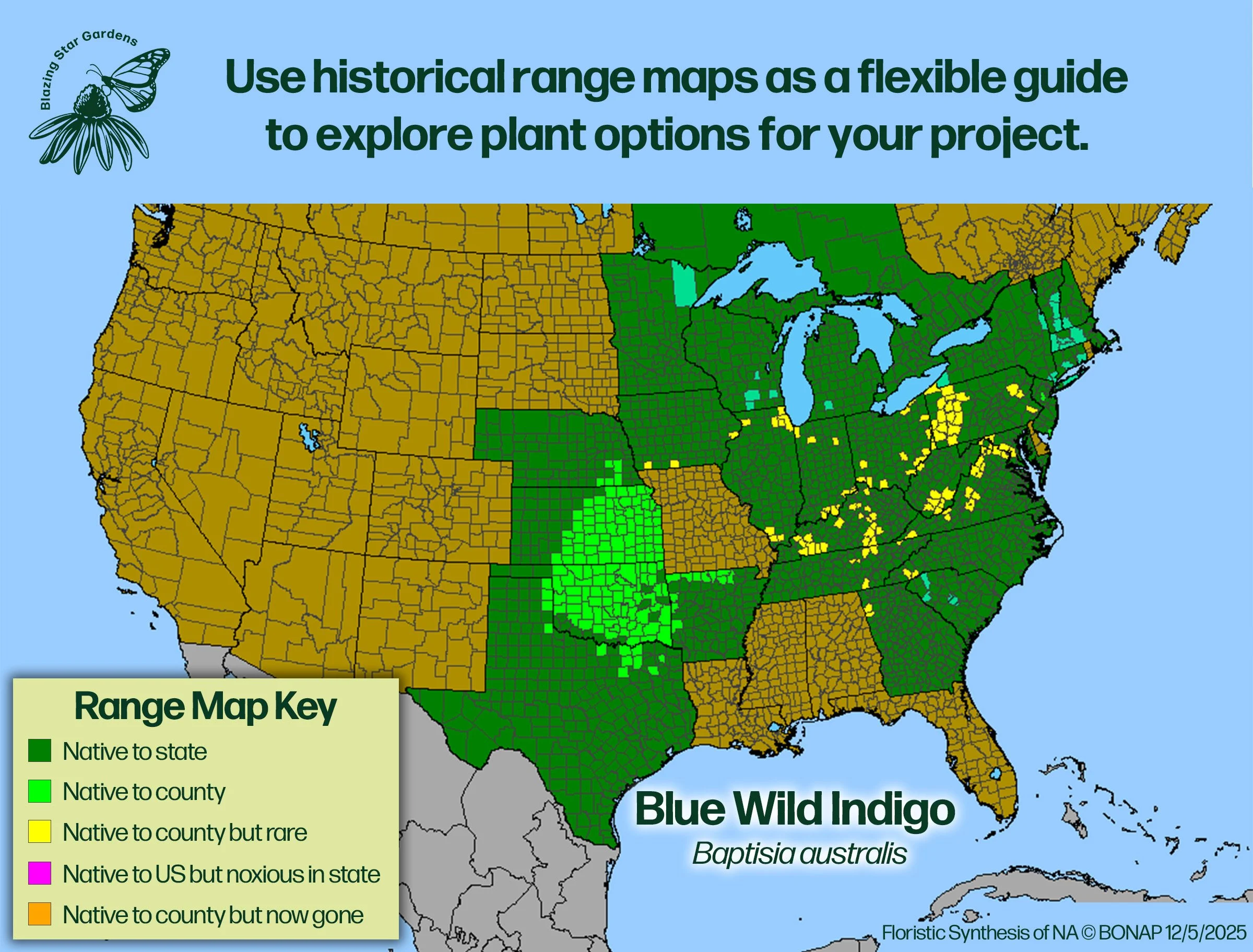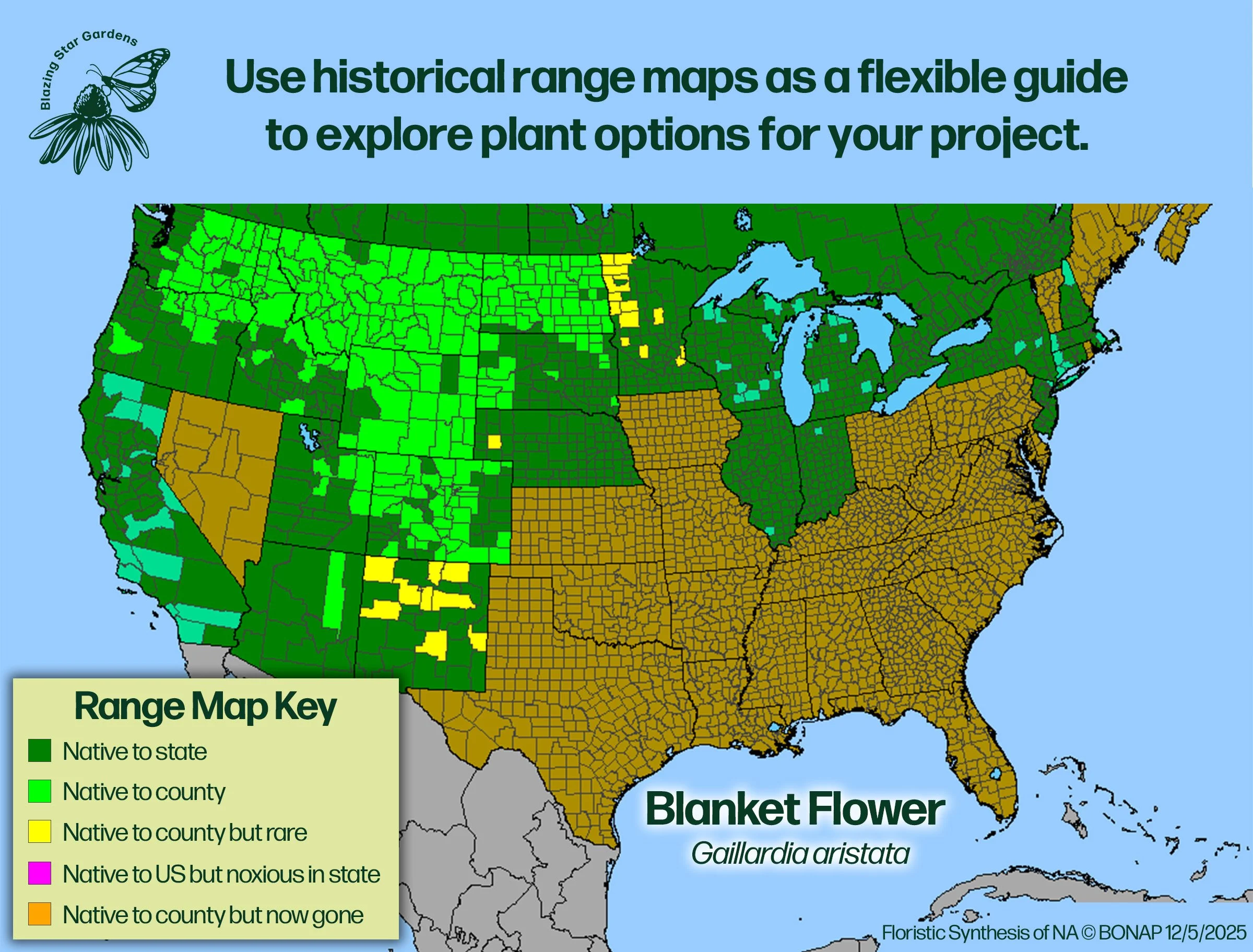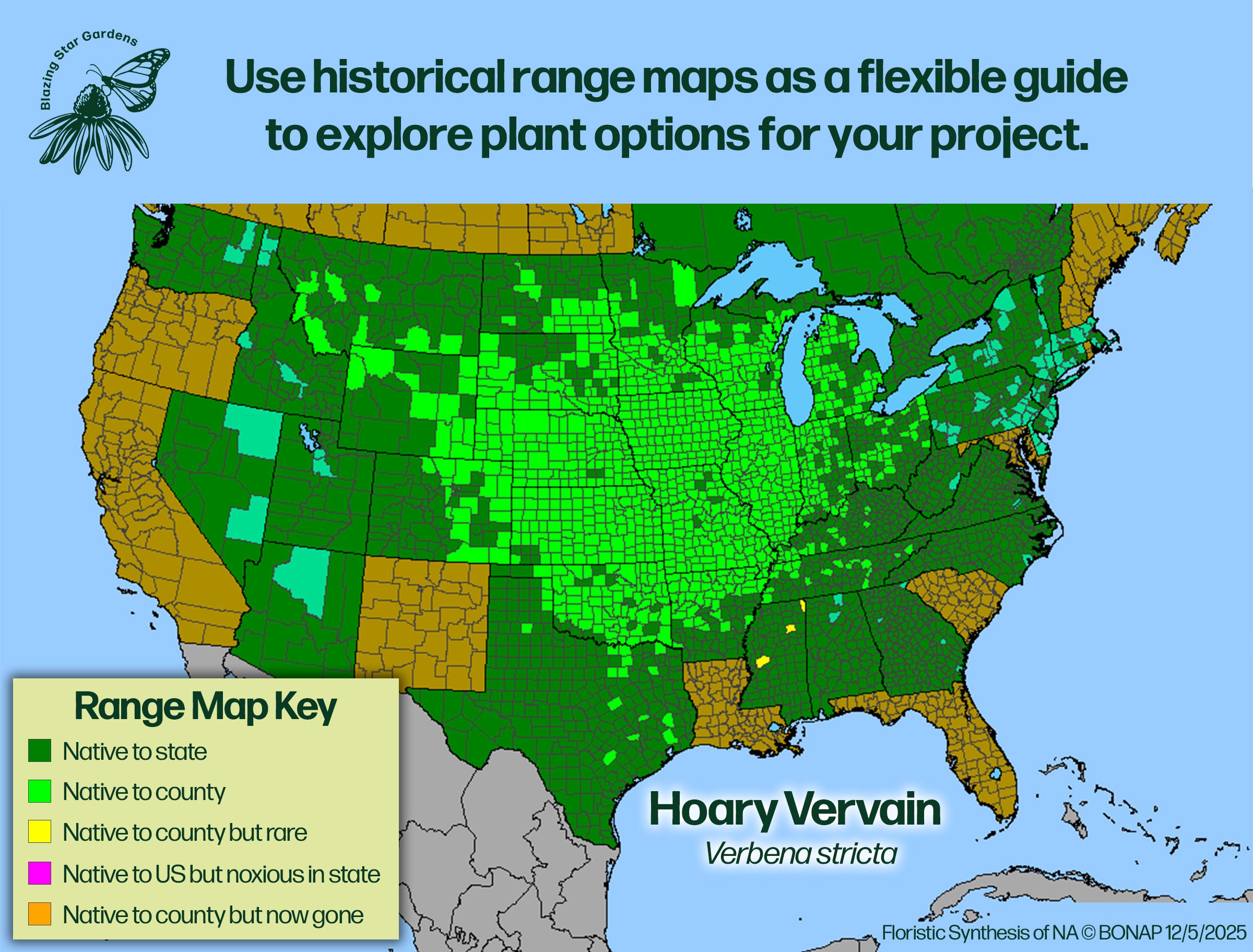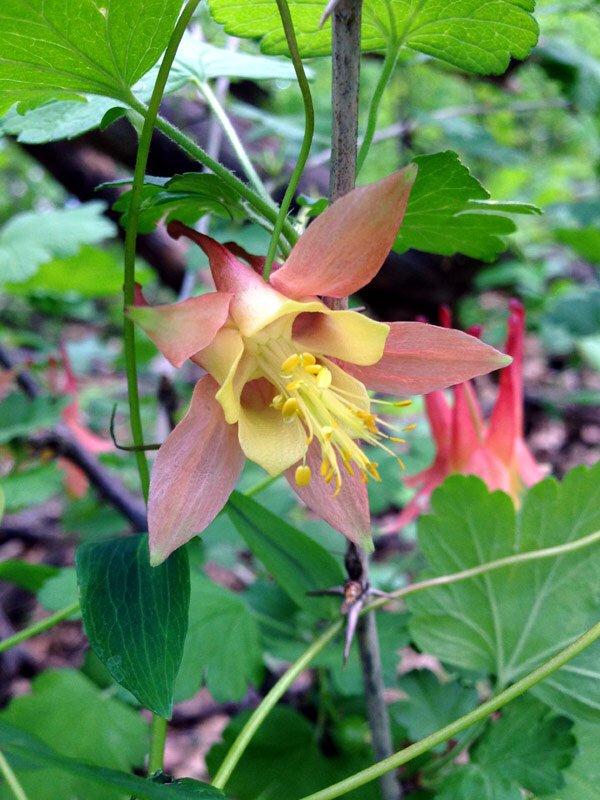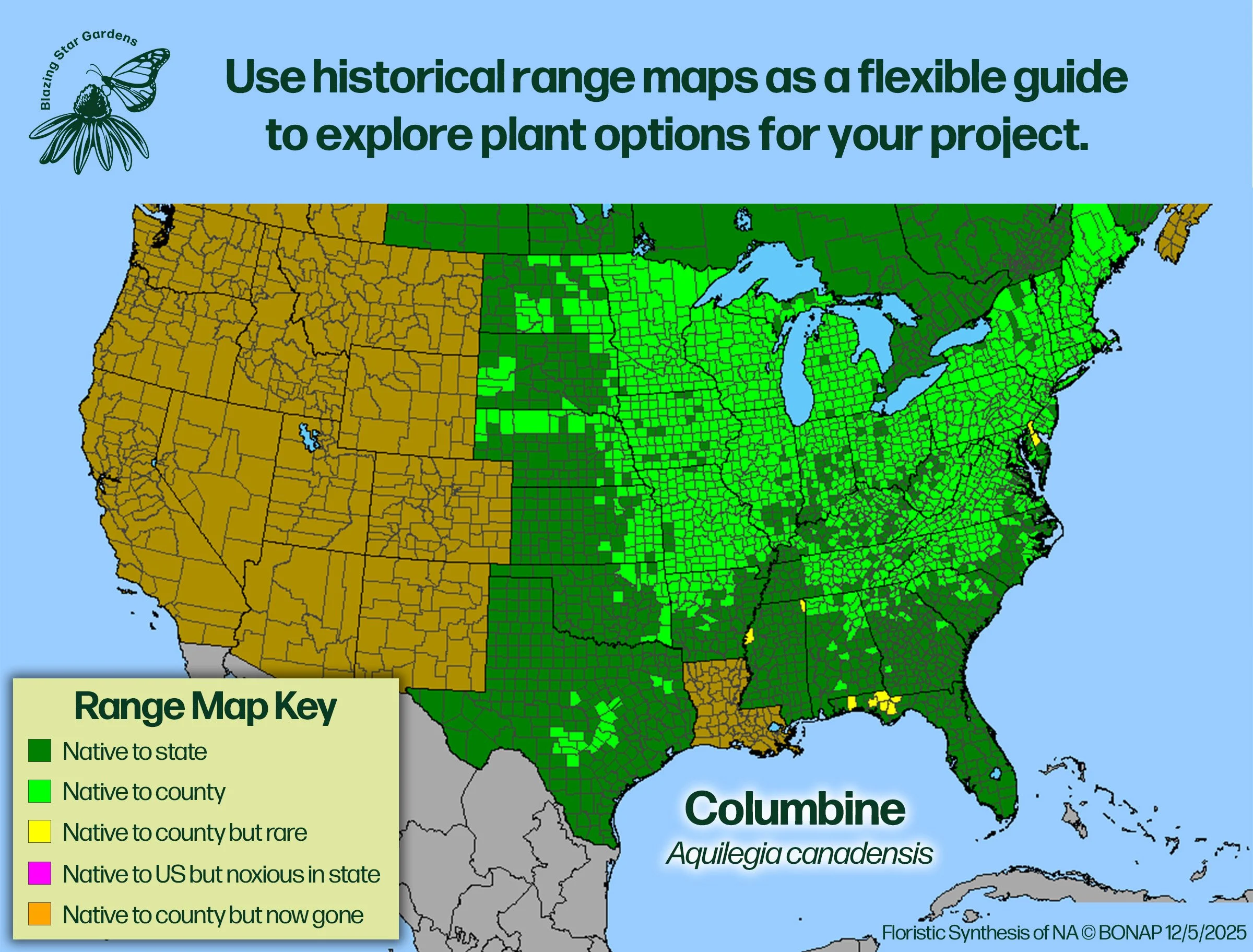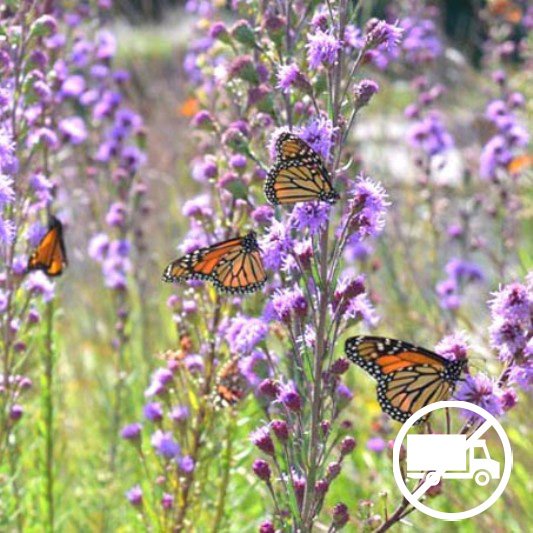 Image 1 of 15
Image 1 of 15

 Image 2 of 15
Image 2 of 15

 Image 3 of 15
Image 3 of 15

 Image 4 of 15
Image 4 of 15

 Image 5 of 15
Image 5 of 15

 Image 6 of 15
Image 6 of 15

 Image 7 of 15
Image 7 of 15

 Image 8 of 15
Image 8 of 15

 Image 9 of 15
Image 9 of 15

 Image 10 of 15
Image 10 of 15

 Image 11 of 15
Image 11 of 15

 Image 12 of 15
Image 12 of 15

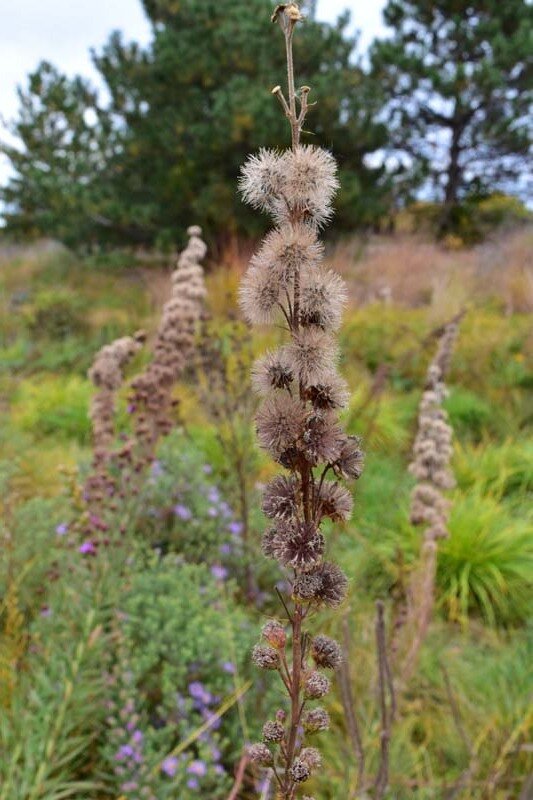 Image 13 of 15
Image 13 of 15

 Image 14 of 15
Image 14 of 15

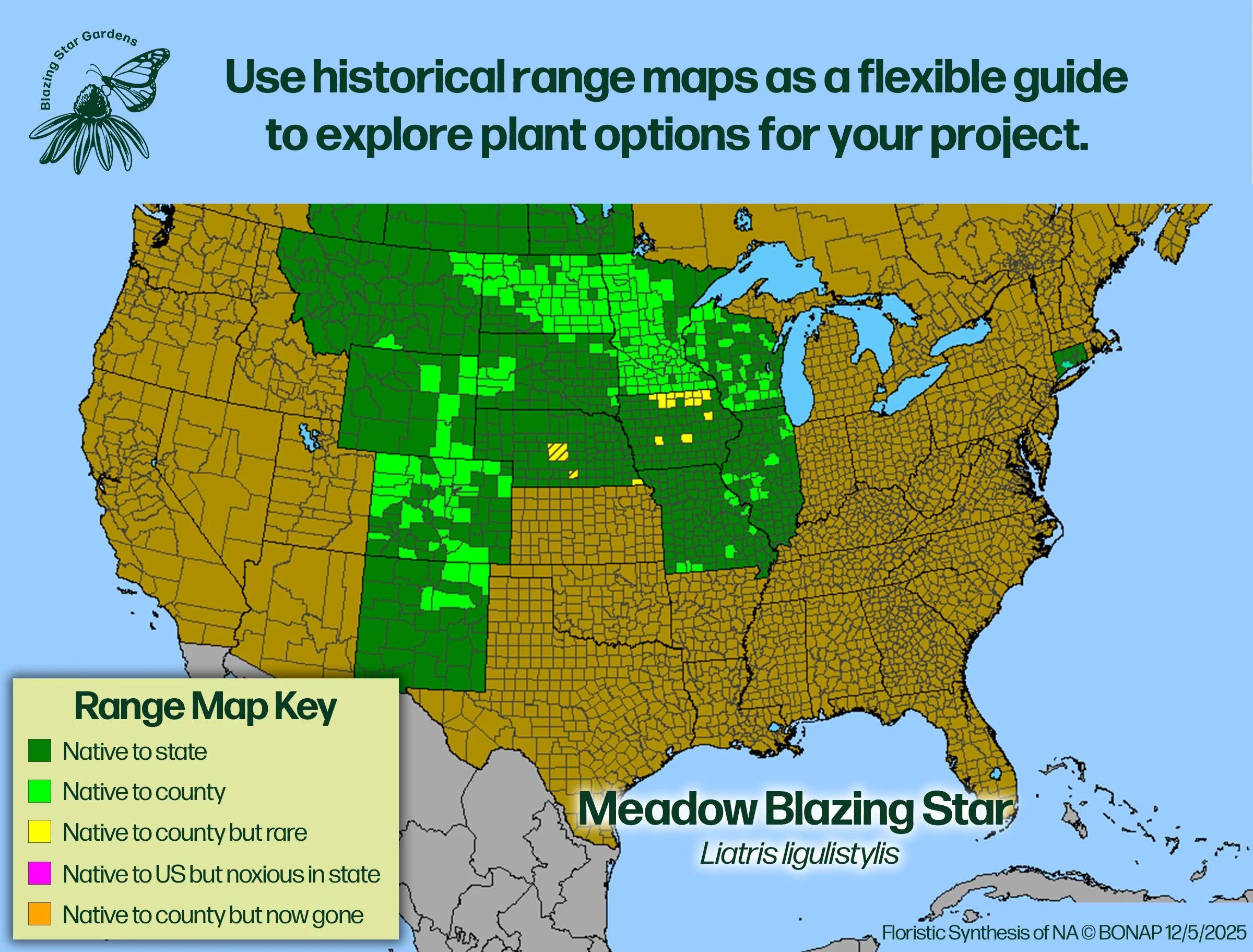 Image 15 of 15
Image 15 of 15
















Meadow Blazing Star (Liatris ligulistylis) 3-pack of pots
Can’t be shipped.
Meadow Blazing Star attracts swarms of monarch butterflies during their August and September migration. If you plant it at your house—even in the middle of the city—you will see more monarchs than you ever thought possible. It’s nicknamed “The Monarch Magnet” for good reason.
Milkweed is an important host plant for eggs and caterpillars, but late-summer blooming plants like Meadow Blazing Star provide nectar during the fall migration.
How many should I plant to attract monarchs?
Plant a few and you’ll get a few monarchs each day. Plant dozens and you’ll get dozens of monarchs. Plant hundreds and you’ll get hundreds of monarchs! In our seed production plots with 4,000 Meadow Blazing Star plants, we get thousands of monarchs every day for weeks and they even congregate into huge roosts in the trees at night.
Also available in 12-packs of plugs here
Details
Perennial
Sun: Full Sun, Part Shade
Moisture: Medium-Dry, Medium-Wet
Height: 5 feet
Blooms: Aug, Sept
Color: Pink, Purple
Spacing: 1-2′
Spreads: A little by seed
Zones: 3-7
Benefits: Butterflies, Pollinators, Birds, Hummingbirds
Design Tips
Meadow Blazing Star is incredible in large masses, especially with all the monarch butterflies it attracts. The tall flower spikes of Meadow Blazing Star (Liatris ligulistylis) look great when planted among short grasses and sedges. You will never regret planting too much of this plant, and your neighbors will also benefit from all of the monarchs flying around the neighborhood.
We like planting Blazing Star with Orange Coneflower and Grey Goldenrod—two yellow flowers that bloom at the same time and provide complimentary colors to the pink Blazing Stars.
Great native plant choice for the Minnesota Lawns to Legumes grant program!
Companion Plants
Blue Wild Indigo
Marsh Milkweed
Prairie Blazing Star
Orange Coneflower
Prairie Dropseed
Fox Sedge
Size: 3-pack of pots, each pot is 3" wide x 3" deep, 2nd year plants
These pots can’t be shipped — pickup only!
Can’t be shipped.
Meadow Blazing Star attracts swarms of monarch butterflies during their August and September migration. If you plant it at your house—even in the middle of the city—you will see more monarchs than you ever thought possible. It’s nicknamed “The Monarch Magnet” for good reason.
Milkweed is an important host plant for eggs and caterpillars, but late-summer blooming plants like Meadow Blazing Star provide nectar during the fall migration.
How many should I plant to attract monarchs?
Plant a few and you’ll get a few monarchs each day. Plant dozens and you’ll get dozens of monarchs. Plant hundreds and you’ll get hundreds of monarchs! In our seed production plots with 4,000 Meadow Blazing Star plants, we get thousands of monarchs every day for weeks and they even congregate into huge roosts in the trees at night.
Also available in 12-packs of plugs here
Details
Perennial
Sun: Full Sun, Part Shade
Moisture: Medium-Dry, Medium-Wet
Height: 5 feet
Blooms: Aug, Sept
Color: Pink, Purple
Spacing: 1-2′
Spreads: A little by seed
Zones: 3-7
Benefits: Butterflies, Pollinators, Birds, Hummingbirds
Design Tips
Meadow Blazing Star is incredible in large masses, especially with all the monarch butterflies it attracts. The tall flower spikes of Meadow Blazing Star (Liatris ligulistylis) look great when planted among short grasses and sedges. You will never regret planting too much of this plant, and your neighbors will also benefit from all of the monarchs flying around the neighborhood.
We like planting Blazing Star with Orange Coneflower and Grey Goldenrod—two yellow flowers that bloom at the same time and provide complimentary colors to the pink Blazing Stars.
Great native plant choice for the Minnesota Lawns to Legumes grant program!
Companion Plants
Blue Wild Indigo
Marsh Milkweed
Prairie Blazing Star
Orange Coneflower
Prairie Dropseed
Fox Sedge










